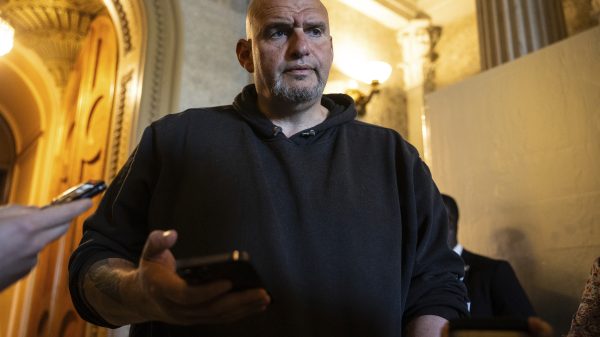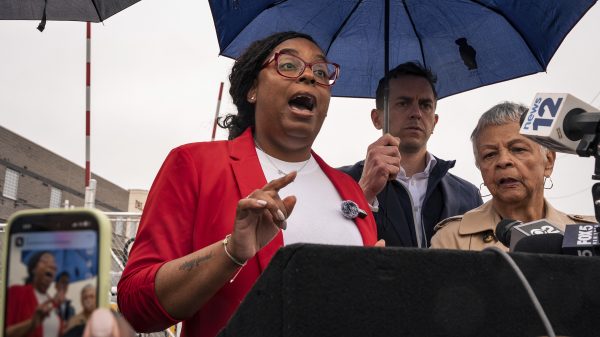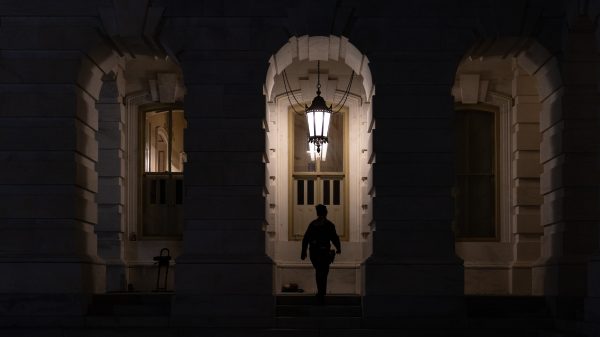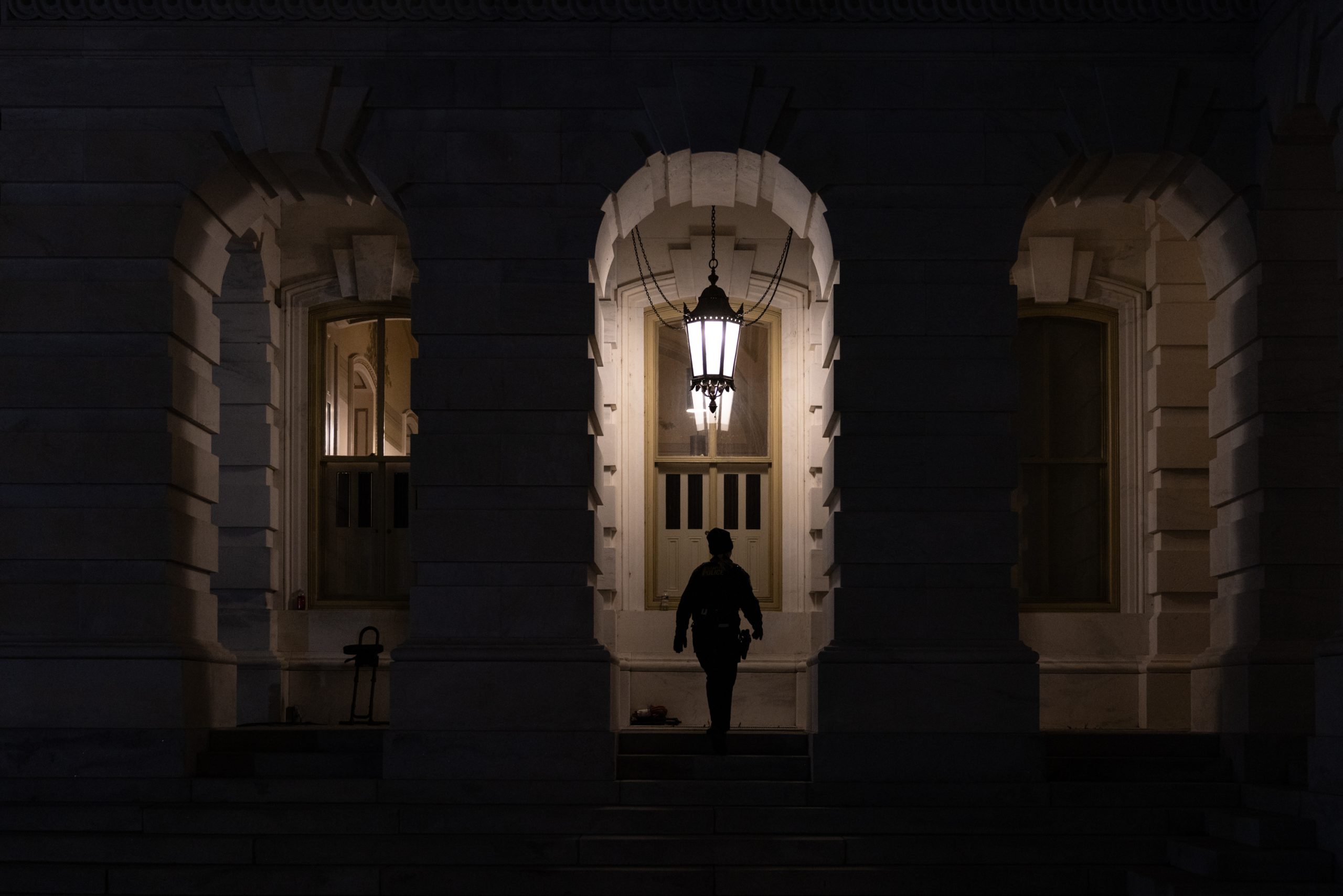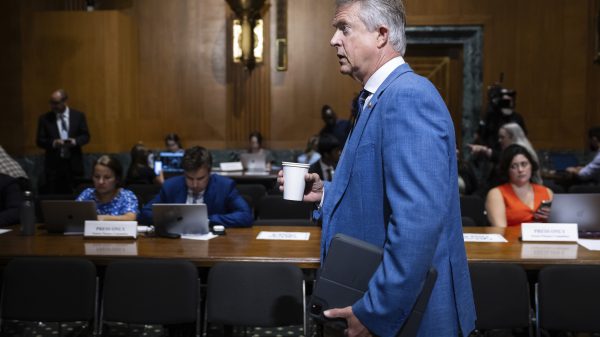The longest shutdown in U.S. history is ending. Yet Congress’ most onerous government funding work remains unfinished — setting up a potential repeat early next year.
The bipartisan deal to end the funding lapse includes a long-term agreement on just three of the dozen bills lawmakers need to finish each year to keep cash flowing to federal programs. And those three measures are some of the easiest to rally around — including money for veterans programs, food aid, assistance for farmers and the operations of Congress itself.
Together, they represent only about 10 percent of the roughly $1.8 trillion Congress doles out each year to federal agencies. Under the deal, everything else is funded on a temporary basis through Jan. 30 at levels first set by Congress in March 2024, when Joe Biden was president.
That leaves behind major open decisions about the vast majority of discretionary dollars — including for the military and public health programs — along with the stickiest policy issues. It doesn’t help that House and Senate leaders still haven’t agreed on an overall total for fiscal 2026 spending, amid GOP divisions over how deeply to cut.
House Majority Leader Steve Scalise acknowledged this month that the hardest part of the funding negotiations is ahead after President Donald Trump signs the current deal to end the shutdown.
“We’ve got to just find a resolution to get the lights back on,” Scalise said. “But the real negotiation is going to be: Can we get an agreement on how to properly fund the government with individual appropriations bills, packages of appropriations bills?”
If lawmakers don’t figure it all out by the new January deadline, Congress risks another partial shutdown or running most of the federal government on what are essentially two-year-old budgets. Some Democrats are already hinting they are willing to shut down the government again without a deal on Affordable Care Act insurance subsidies that expire at the end of this year.
Compounding the challenge are fears that partisan strife during the six-week shutdown will only complicate the already-grueling task of striking a cross-party compromise.
“If we’re going to function again, we’ve got to be able to trust each other,” senior appropriator Sen. Jeanne Shaheen (D-N.H.) told reporters this week, after helping broker the deal to end the shutdown.
The three-bill deal appears to have done little to repair the breach. One of Congress’ top four appropriators, Rep. Rosa DeLauro (D-Conn.), objected to how final negotiations played out over the weekend to close out the funding package.
“The entire House was marginalized in this process,” she said Tuesday night during a Rules Committee meeting.
DeLauro accused Senate Republicans of “abruptly” stopping talks in the middle of negotiations, making the bills public before she signed off and secretly adding controversial language without consulting House lawmakers.
In the Senate, leaders have committed to quickly advancing more funding measures. Majority Leader John Thune said senators would be “off to the races” on a second package of spending measures when the chamber gavels back in on Tuesday.
Up to five bills are under consideration for inclusion in that package, covering funding for the military and the departments of Education, Commerce, Labor, Health and Human Services, Justice, Transportation, Interior and Housing and Urban Development.
Getting that done will be hard enough. All 100 senators would have to consent to quickly assemble the bills on the floor, likely followed by weeks of debate before a vote on passage. Then top Senate appropriators would need to strike a compromise with their House counterparts.
But the remaining spending bills will be even tougher. Four are so divisive that Senate appropriators didn’t even approve them in committee this summer. Lawmakers in both parties agree it is likely that agencies covered under that slate — among them the departments of Energy, Homeland Security, State and Treasury, including the IRS — will eventually be funded through a stopgap that spans through next September.
Democrats warn that any partisan demands from Trump or hard-liners in the House could deadlock the effort to reach agreements on the nine bills left.
“If they want to add poison pills, obviously the whole thing will fall apart,” Sen. Chris Van Hollen (D-Md.), a senior appropriator, said in a brief interview.
But Democrats are also motivated to strike bipartisan deals in light of Trump and White House budget director Russ Vought’s moves this year to shift, freeze and cancel billions of dollars Congress already approved.
Senators have been careful to be more explicit in the new trio of funding bills about how the Trump administration must spend the money.
“Obviously, those are not the bills I would have written,” the Senate’s top Democratic appropriator, Washington Sen. Patty Murray, said in a floor speech this week. But those bills, she added, are “immeasurably better than Trump and Vought holding the pen.”
“We have a lot of work ahead, and I know we can get there — passing full-year funding bills to ensure Congress, not Trump or Russ Vought, decides how taxpayer dollars are spent,” she continued.
A couple of the remaining bills, however, are subject to much more profound disputes. An intraparty disagreement over funding levels between Senate Appropriations Chair Susan Collins (R-Maine) and Sen. John Kennedy (R-La.), for instance, has left the energy bill in limbo.
“I know that is a new experience for everybody on the committee,” Kennedy said this week. “But I’m not backing down.”
And then there’s the DHS measure, which hasn’t been unveiled, let alone advanced through committee amid a deep partisan dispute over curbing Trump’s immigration agenda.
Connecticut Sen. Chris Murphy, the top Democrat on the panel that funds DHS, said he wants “real constraints” to prevent what he calls the Trump administration’s “clearly illegal” transfers of funding to support border enforcement and mass deportations.
“It’s going to be really hard to get a bipartisan long-term budget,” Murphy said, pointing to $600 million the administration is now using for detaining immigrants despite Congress explicitly approving it for “non-detention” efforts.
Sen. Katie Britt of Alabama, who has clashed with Murphy as his GOP counterpart on the panel, acknowledged appropriators have “a lot of hard work in front of us” when asked this week about the challenge of advancing the next tranche of spending bills.
“I don’t think anyone is naive,” she said.
Meredith Lee Hill contributed to this report.





